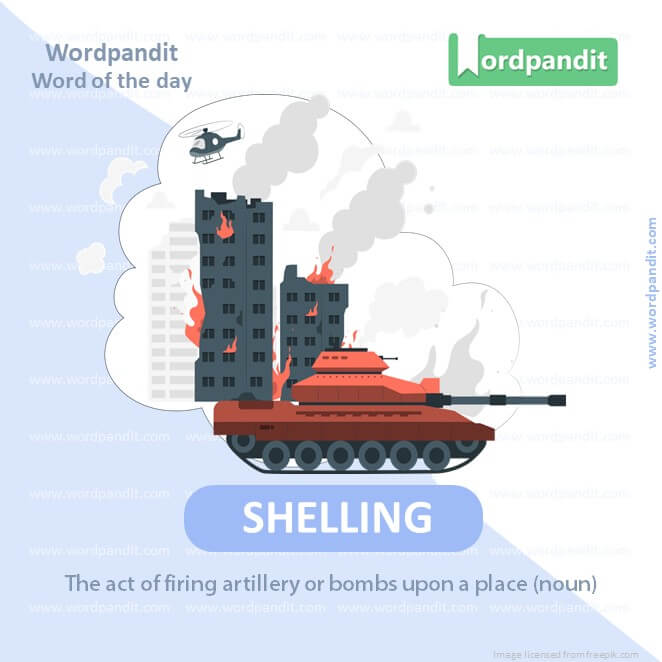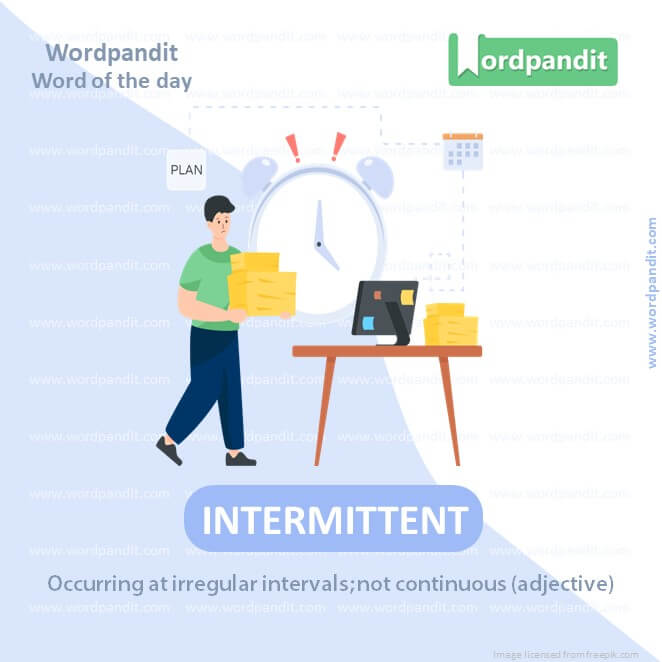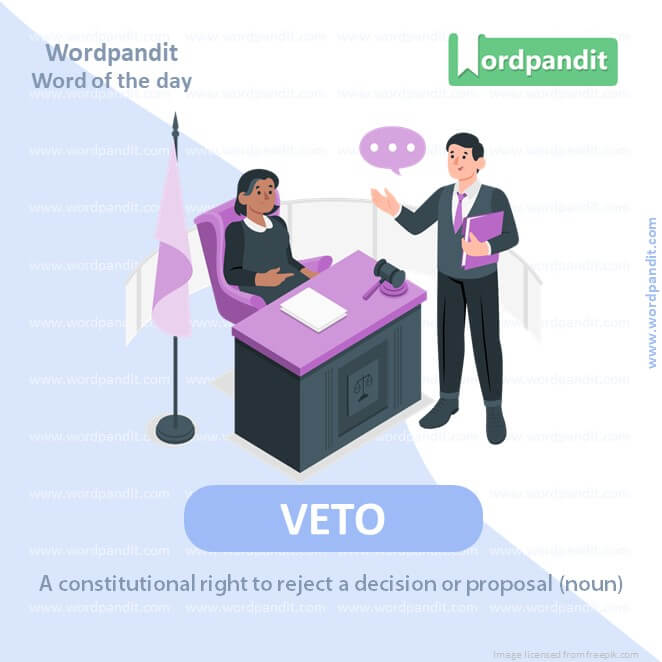Daily Vocabulary Words: List of Daily Used Words
Hi there. Welcome to this special section @ Wordpandit.
Our endeavour here is straightforward: highlighting important daily vocabulary words, you would encounter in The Hindu. This is your repository of commonly used words; essentially, we are posting a list of daily used words. Hence, this has significant practical application as it teaches you words that are commonly used in a leading publication such as The Hindu.
Visit the website daily to learn words from The Hindu.

WORD-1: SHELLING
CONTEXT: Indiscriminate shelling and airstrikes by both factions aren’t uncommon in Sudan’s war, which has reduced the Greater Khartoum area to a battleground.
SOURCE: The Hindu
EXPLANATORY PARAGRAPH: Imagine big fireworks that explode in the sky. Now, instead of a celebration, people use similar big explosions in wars to attack places. That act of sending those big booms is called “shelling.”
MEANING: The act of firing artillery or bombs upon a place. (noun)
PRONUNCIATION: SHEL-ing
SYNONYMS: Bombardment, barrage, firing, blasting, cannonade, volley, fusillade
USAGE EXAMPLES:
1. The city was under heavy shelling last night.
2. The troops stopped their shelling at dawn.
3. We could hear the distant sound of shelling from the border.
4. The village faced continuous shelling during the conflict.

WORD-2: INTERMITTENT
CONTEXT: Intermittent rain pushed the marquee Asia Cup clash between India and Pakistan to a reserve day in Colombo on Sunday.
SOURCE: The Hindu
EXPLANATORY PARAGRAPH: Imagine a flashlight that blinks on and off, on and off. It doesn’t stay on all the time, but only sometimes. That blinking or on-and-off pattern is called “intermittent.”
MEANING: Occurring at irregular intervals; not continuous. (adjective)
PRONUNCIATION: in-ter-MIT-ent
SYNONYMS: Sporadic, irregular, periodic, occasional, infrequent, broken, fitful
USAGE EXAMPLES:
1. The car’s engine made an intermittent noise.
2. We experienced intermittent rain throughout the day.
3. Her attendance was intermittent, making it hard to track her progress.
4. The signal was intermittent, causing the radio to break up.

WORD-3: ELICITED
CONTEXT: The four year B.Sc Honours course in engineering colleges launched by the Visvesvaraya Technological University (VTU) two years ago has also elicited poor response.
SOURCE: The Hindu
EXPLANATORY PARAGRAPH: Think of trying to get a toy out of a box by shaking it. When you do something to get a reaction or answer, that’s like “eliciting.” It’s like getting something out by trying.
MEANING: Draw out (a reaction, answer, or fact) from someone. (verb)
PRONUNCIATION: eh-LIS-it-ed
SYNONYMS: Obtain, extract, evoke, provoke, induce, trigger, prompt
USAGE EXAMPLES:
1. Her smile elicited a warm response from the crowd.
2. The interviewer elicited the truth from the candidate.
3. The comedian’s joke elicited loud laughter.
4. The teacher elicited answers from the students with probing questions.

WORD-4: VETO
CONTEXT: Scores of Indian-Americans held a peaceful protest rally in the State Capital of Sacramento urging California Governor Gavin Newsom to veto the anti-caste discrimination bill, recently passed by the State Assembly, which they asserted is discriminatory and targets the Indians in general and Hindus in particular.
SOURCE: The Hindu
EXPLANATORY PARAGRAPH: Imagine you want to eat candy before dinner, but your mom says “No!” That’s kind of like a “veto.” It’s when someone has the power to say no to a decision.
MEANING: A constitutional right to reject a decision or proposal. (noun)
PRONUNCIATION: VEE-toh
SYNONYMS: Rejection, refusal, prohibition, denial, dismissal, interdiction, embargo
USAGE EXAMPLES:
1. The president used his veto power to stop the bill.
2. The council has a veto over the mayor’s decisions.
3. She exercised her veto and declined the offer.
4. The proposed change was subject to a veto by the committee.

WORD-5: ANCESTRY
CONTEXT: The legislation revises California’s Unruh Civil Rights Act by adding caste as a protected category under “ancestry”.
SOURCE: The Hindu
EXPLANATORY PARAGRAPH: Imagine a big family tree with branches. On that tree, you can see your grandparents, great-grandparents, and so on. All these people from the past in your family are your “ancestry.”
MEANING: One’s family or ethnic descent. (noun)
PRONUNCIATION: AN-sess-tree
SYNONYMS: Lineage, descent, genealogy, heritage, pedigree, family tree, bloodline
USAGE EXAMPLES:
1. He was proud of his Viking ancestry.
2. She traced her ancestry back to the 16th century.
3. The festival celebrated the region’s rich ancestry.
4. Documents revealed the royal ancestry of the family.
WORD-6: INITIATIVE
CONTEXT: The new economic corridor, which many see as an alternative to China’s Belt and Road Initiative, was jointly announced on September 9 by the leaders of the U.S., India, Saudi Arabia, the United Arab Emirates, France, Germany, Italy and the European Union on the sidelines of the G20 summit in New Delhi.
SOURCE: The Hindu
EXPLANATORY PARAGRAPH: Imagine seeing a messy room and deciding to clean it up without anyone asking you to. Taking that first step and doing something on your own is called “initiative.”
MEANING: The ability to assess and start things independently. (noun)
PRONUNCIATION: in-ISH-uh-tiv
SYNONYMS: Drive, ambition, self-starting, resourcefulness, enterprise, motivation, leadership
USAGE EXAMPLES:
1. She took the initiative and organized the event.
2. The new initiative aimed to reduce waste in the city.
3. Employees are encouraged to show initiative.
4. The community started a health initiative to promote exercise.
WORD-7: UNPRECEDENTED
CONTEXT: In a video message released late on Saturday evening, Mr. Netanyahu said that Israel is at the focus of an unprecedented international project that will link infrastructure from Asia to Europe.
SOURCE: The Hindu
EXPLANATORY PARAGRAPH: Imagine seeing a purple elephant for the first time. It’s something you’ve never seen before! When something is new and has never happened or been seen before, it’s called “unprecedented.”
MEANING: Never done or known before. (adjective)
PRONUNCIATION: un-PREH-seh-den-ted
SYNONYMS: Unseen, novel, unparalleled, unmatched, new, unique, unheard of
USAGE EXAMPLES:
1. The company experienced unprecedented growth.
2. The storm brought an unprecedented amount of rainfall.
3. Her achievement was unprecedented in the sports world.
4. The decision was based on an unprecedented situation.
WORD-8: GLOOMY
CONTEXT: With protesters turning up in hundreds of thousands every weekend for the last 36 weeks, Israel faces threats of mass emigration, resignations in critical positions, army desertions, strikes and flight of capital backed by gloomy predictions from prestigious global credit rating agencies.
SOURCE: The Hindu
EXPLANATORY PARAGRAPH: Imagine a day when the sky is full of dark clouds, and it feels a bit sad or down. When something is dark, sad, or not happy, we can call it “gloomy.”
MEANING: Dark or poorly lit, making it hard to see. (adjective)
PRONUNCIATION: GLOO-mee
SYNONYMS: Dark, dim, dreary, bleak, dismal, overcast, shadowy
USAGE EXAMPLES:
1. The room was gloomy and needed more light.
2. The news made everyone feel a bit gloomy.
3. The weather was gloomy all day, with dark clouds overhead.
4. He had a gloomy expression on his face.
WORD-9: BURSTS
CONTEXT: With Himachal Pradesh suffering a cumulative loss over ₹12,000 crores following heavy rains that triggered several landslides, flash floods and cloud bursts during the ongoing monsoon season, Chief Minister Sukhvinder Singh Sukhu has urged Prime Minister Narendra Modi to declare natural disaster in the State as a ‘national disaster’.
SOURCE: The Hindu
EXPLANATORY PARAGRAPH: Imagine blowing up a balloon so much that it suddenly pops! That quick pop or explosion is like a “burst.” It’s when something breaks open suddenly.
MEANING: Break open or apart suddenly and violently. (verb)
PRONUNCIATION: BURSTS
SYNONYMS: Explodes, ruptures, breaks open, shatters, fractures, splinters, splits
USAGE EXAMPLES:
1. The water pipe bursts and flooded the room.
2. She bursts into laughter after hearing the joke.
3. The fireworks bursts in the sky, illuminating the night.
4. The bubble bursts when he touched it.
WORD-10: MODERATED
CONTEXT: The session was moderated by Professor Christophe Jaffrelot, director of the Centre of International Studies, and chaired by Arancha Gonzalez, dean of the Paris School of International Affairs at Sciences PO University, Paris.
SOURCE: The Hindu
EXPLANATORY PARAGRAPH: Imagine two friends arguing and a third friend comes and helps them calm down and talk nicely. That third friend is “moderating.” It means making something less extreme or helping keep things balanced and calm.
MEANING: Make or become less extreme, intense, or severe. (verb)
PRONUNCIATION: MOD-er-ay-ted
SYNONYMS: Lessen, reduce, temper, calm, mellow, adjust, stabilize
USAGE EXAMPLES:
1. He moderated his tone of voice after realizing he was too loud.
2. The workshop was moderated by an expert from the industry.
3. The wind moderated by evening, making it safer to sail.
4. She moderated the debate between the two candidates.
Vocabulary 100 Words
Language proficiency starts with a robust vocabulary, and one significant way to achieve this is through a ‘vocabulary 100 words’ endeavour. This denotes an ambitious yet achievable target of learning a hundred new words. Though it may seem a daunting task initially, learning a ‘vocabulary 100 words’ can be simplified and made enjoyable with strategic approaches.
Begin your ‘vocabulary 100 words’ journey by selecting an array of words relevant to your needs. These can be words from textbooks, novels, articles, or topic-specific jargon based on your interests or requirements. Having a curated list of ‘vocabulary 100 words’ gives you a concrete learning path.
Divide your ‘vocabulary 100 words’ into manageable chunks. Taking five words a day, for instance, allows for focused learning and ample repetition to reinforce memory. As you grow comfortable with this rate, you can progressively increase the number of words daily.
The inclusion of your ‘vocabulary 100 words’ in daily communication is crucial. Utilize these words in your conversations, sharable comments, or write-ups, helping you to understand their meaning and usage better while enhancing memory.
Creating flashcards can support your ‘vocabulary 100 words’ learning process efficiently. Writing each word on one side of the flashcard and its meaning and example on the other provides an interactive revision and learning method.
In the digital age, a prolific way of learning ‘vocabulary 100 words’ involves leveraging language learning apps. Many of these platforms provide lists of high-frequency or essential words which can be an excellent source for your ‘vocabulary 100 words’ goal.
In conclusion, setting a ‘vocabulary 100 words’ target is not only an ambitious language goal, but also a structured and progressive way to conduct language learning. By using a focused, varied, and interactive learning approach, you can accomplish your ‘vocabulary 100 words’ learning goal and make strides in your journey to language proficiency.











